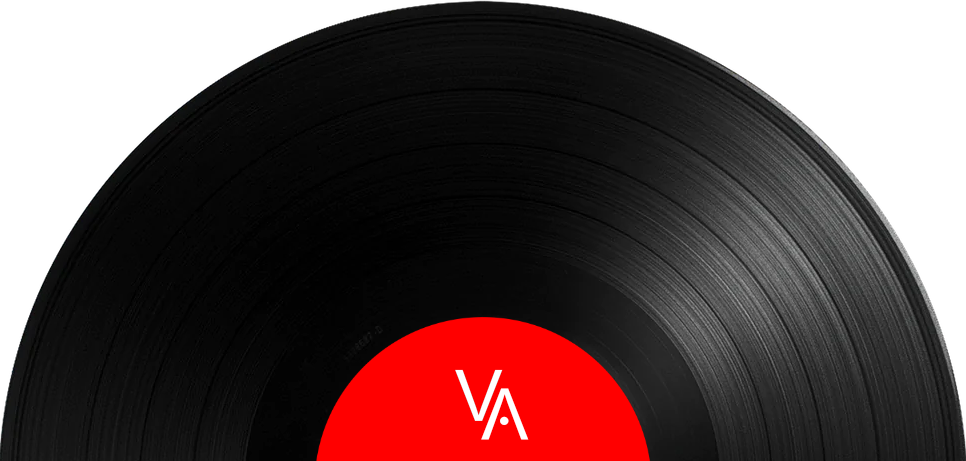The Mobile Fidelity version of this classic record that I am listening to right now sounds even more impressive than the original issue that came out in 1977, which I had for a while. There are so many intricacies within the grooves of this pressing that I hear something new every time I play it. It's just so superbly crafted. It stands is Steely Dan’s masterpiece - and while it can be argued that there are many masterpieces in the Dan’s repertoire, this is the one I’m taking to a desert island.
Perhaps the most remarkable thing about this LP is how well the band is able to replicate the music live on stage, as I was lucky enough to witness several years back. Complicated time structures, interesting key changes … this is no ordinary gathering of musicians.
Considering how great this LP is, and how hard it can be to find the long out-of-print Mobile Fidelity re-issue, it’s a bit odd how you can still scoop a copy on e-Bay for about $140. As the years progress it is bound to become more sought after and therefore much more valuable. Find one quick!
I also had a red vinyl Canadian pressing of this LP hiding next to this one on the shelf, but I traded it in. Don't need two of anything - just the best sounding.
Donald Fagen and Walter Becker invited a lot of great jazz musicians to contribute to this record. Perfectionists to the core, Fagen and Becker would record the same parts using different musicians until they found "the thing" that fit the music best. This is the process that was in place during the recording of Aja and it was in this manner that Steve Gadd and Wayne Shorter - who both help define the record's overall tone - ended up on the album.
Steve Gadd was often sought out by artists who inhabited the sophisticated side of popular music. His ability to find drum patterns that enhanced a particular song was highly regarded and coveted. He'd previously played on Paul Simon's 50 Ways to Leave Your Lover, and it can be argued his drumming on that track is what makes the song so outstanding. It's as unique a signature as Ringo's drumming on Ticket To Ride.
Gadd's drumming also significantly enhanced Ricki Lee Jones' Chuck E’s In Love, so it was probably only a matter of time until Fagen and Becker brought him into the studio to see what he could do for them on Aja's title track. They had already tried several other drummers but hadn't liked what they'd heard. Nobody seemed able to find the essence of the song. Then along comes Steve Gadd, who nailed it on the first take!
Wayne Shorter had previously recorded with Joni Mitchell, starting with the Mingus LP, but that pretty much summed up his involvement in pop music by the time this record was recorded. But his eight albums of work with Weather Report had made him very well-known, and Fagen and Becker were well aware of what he was doing. Walter Becker would later say of Wayne Shorter: “Conceptually his music was so much more interesting than other bebop-schooled players. His work with Weather Report showed he was obviously familiar with the idea of what pop records and crossover were. That wasn’t always the case with jazz musicians - lots of them didn’t overdub well because they were not familiar with the pop form.”
Shorter would subsequently become very well known because of the one-minute solo he plays on Aja, which in popular culture possibly eclipses his entire output with Weather Report.
While Shorter and Gadd both have solos in the middle instrumental part of the song that overlap and compliment each other and sound as though they are playing together in the same room, the two men did not record their contributions together. They weren't anywhere near each other. And Gadd had not heard Shorter’s solo when he laid his drum track down because it had not yet been recorded. He later recalled he had been in Los Angeles working on something else when he got the call from Steely Dan. "They asked for fills between the figures they already had," he said. "Back then there were all of these stories about Becker and Fagen never being satisfied for one reason or another, but we just sort of sailed through everything. We did the song live in the studio and then Wayne overdubbed his parts after."
In my record collection, this LP is right up there near the top of the list. It is and probably always will be one of the greatest records ever recorded, which makes it …
The Mobile Fidelity version of this classic record that I am listening to right now sounds even more impressive than the original issue that came out in 1977, which I had for a while. There are so many intricacies within the grooves of this pressing that I hear something new every time I play it. It's just so superbly crafted. It stands is Steely Dan’s masterpiece - and while it can be argued that there are many masterpieces in the Dan’s repertoire, this is the one I’m taking to a desert island.
Perhaps the most remarkable thing about this LP is how well the band is able to replicate the music live on stage, as I was lucky enough to witness several years back. Complicated time structures, interesting key changes … this is no ordinary gathering of musicians.
Considering how great this LP is, and how hard it can be to find the long out-of-print Mobile Fidelity re-issue, it’s a bit odd how you can still scoop a copy on e-Bay for about $140. As the years progress it is bound to become more sought after and therefore much more valuable. Find one quick!
I also had a red vinyl Canadian pressing of this LP hiding next to this one on the shelf, but I traded it in. Don't need two of anything - just the best sounding.
Donald Fagen and Walter Becker invited a lot of great jazz musicians to contribute to this record. Perfectionists to the core, Fagen and Becker would record the same parts using different musicians until they found "the thing" that fit the music best. This is the process that was in place during the recording of Aja and it was in this manner that Steve Gadd and Wayne Shorter - who both help define the record's overall tone - ended up on the album.
Steve Gadd was often sought out by artists who inhabited the sophisticated side of popular music. His ability to find drum patterns that enhanced a particular song was highly regarded and coveted. He'd previously played on Paul Simon's 50 Ways to Leave Your Lover, and it can be argued his drumming on that track is what makes the song so outstanding. It's as unique a signature as Ringo's drumming on Ticket To Ride.
Gadd's drumming also significantly enhanced Ricki Lee Jones' Chuck E’s In Love, so it was probably only a matter of time until Fagen and Becker brought him into the studio to see what he could do for them on Aja's title track. They had already tried several other drummers but hadn't liked what they'd heard. Nobody seemed able to find the essence of the song. Then along comes Steve Gadd, who nailed it on the first take!
Wayne Shorter had previously recorded with Joni Mitchell, starting with the Mingus LP, but that pretty much summed up his involvement in pop music by the time this record was recorded. But his eight albums of work with Weather Report had made him very well-known, and Fagen and Becker were well aware of what he was doing. Walter Becker would later say of Wayne Shorter: “Conceptually his music was so much more interesting than other bebop-schooled players. His work with Weather Report showed he was obviously familiar with the idea of what pop records and crossover were. That wasn’t always the case with jazz musicians - lots of them didn’t overdub well because they were not familiar with the pop form.”
Shorter would subsequently become very well known because of the one-minute solo he plays on Aja, which in popular culture possibly eclipses his entire output with Weather Report.
While Shorter and Gadd both have solos in the middle instrumental part of the song that overlap and compliment each other and sound as though they are playing together in the same room, the two men did not record their contributions together. They weren't anywhere near each other. And Gadd had not heard Shorter’s solo when he laid his drum track down because it had not yet been recorded. He later recalled he had been in Los Angeles working on something else when he got the call from Steely Dan. "They asked for fills between the figures they already had," he said. "Back then there were all of these stories about Becker and Fagen never being satisfied for one reason or another, but we just sort of sailed through everything. We did the song live in the studio and then Wayne overdubbed his parts after."
In my record collection, this LP is right up there near the top of the list. It is and probably always will be one of the greatest records ever recorded, which makes it …




